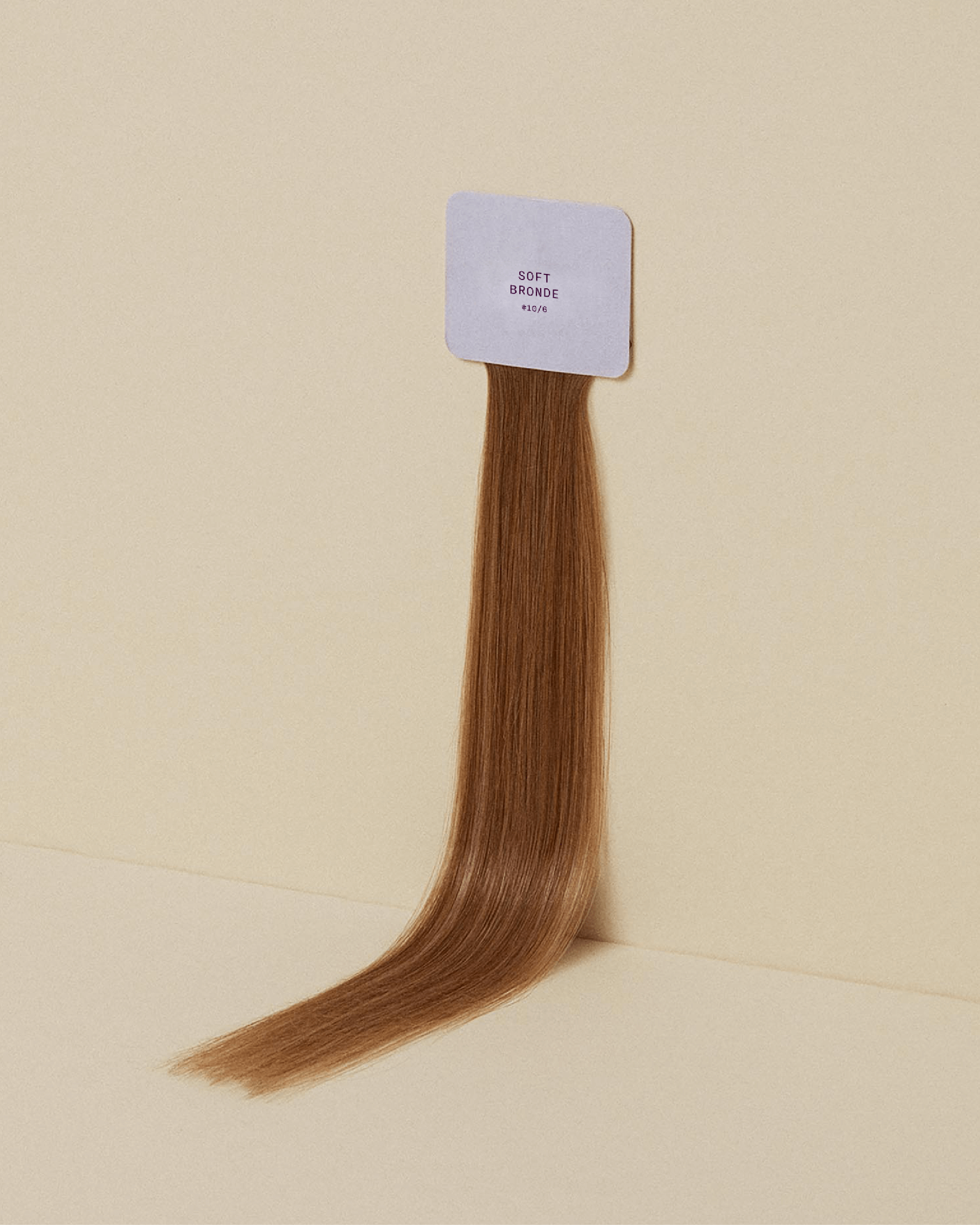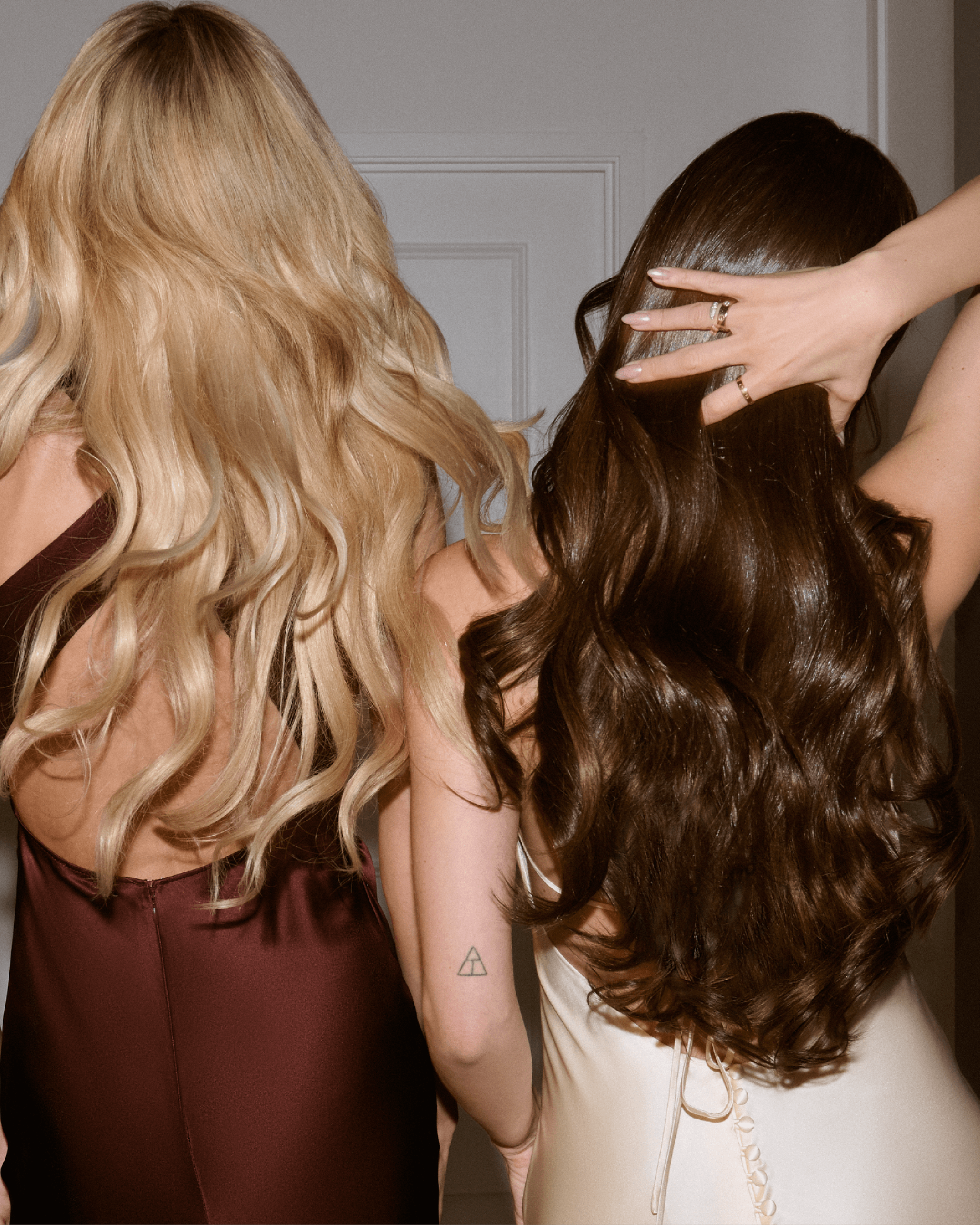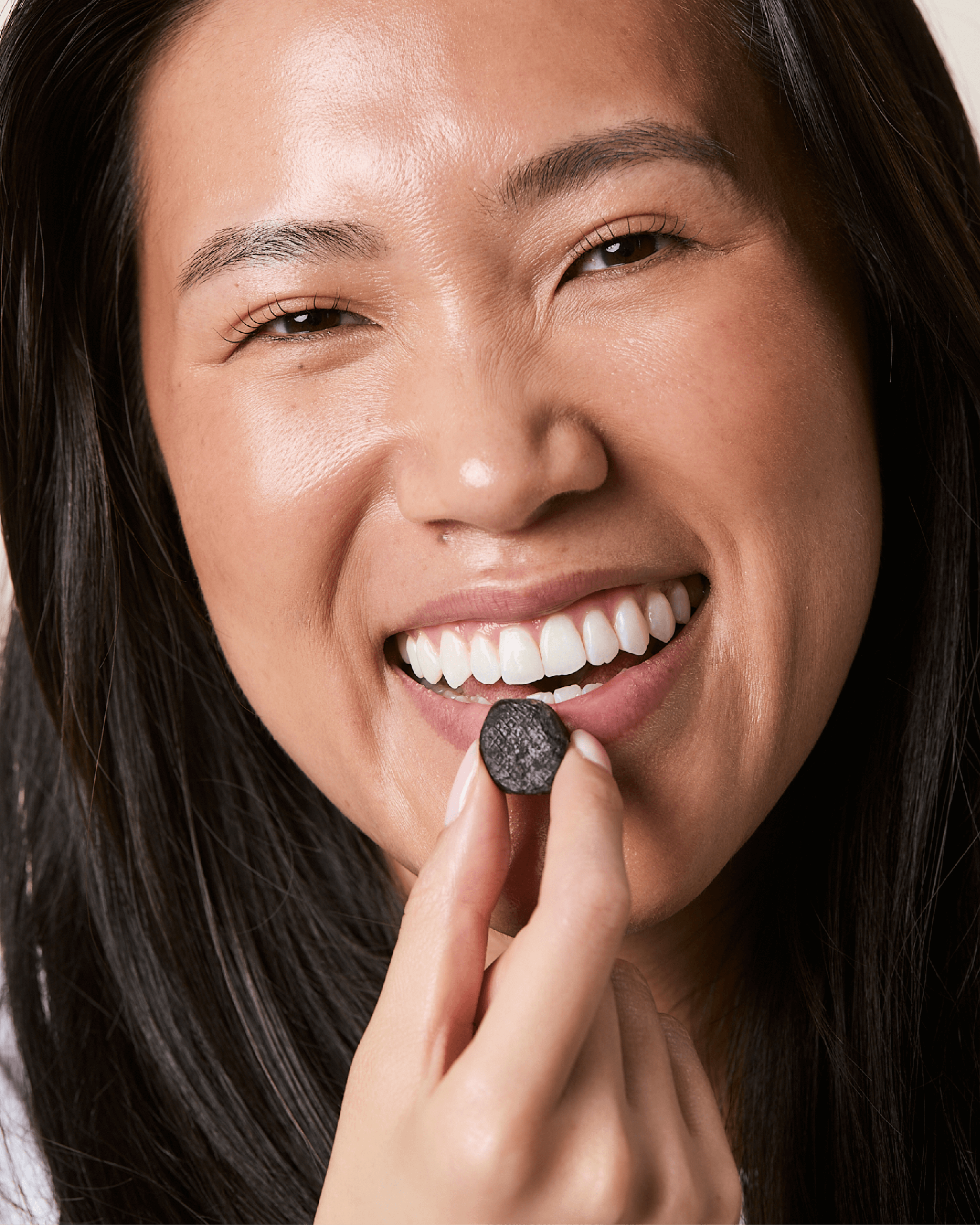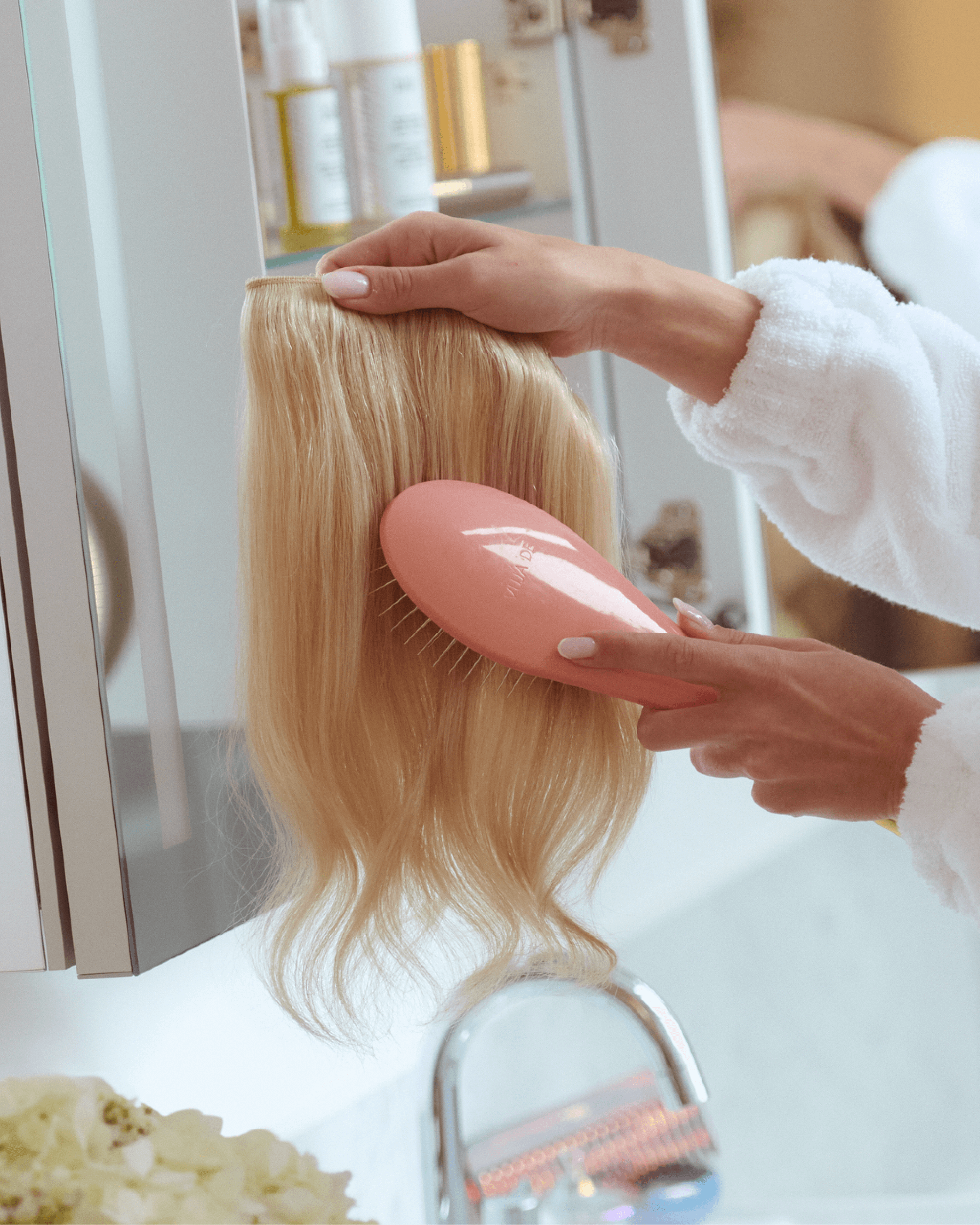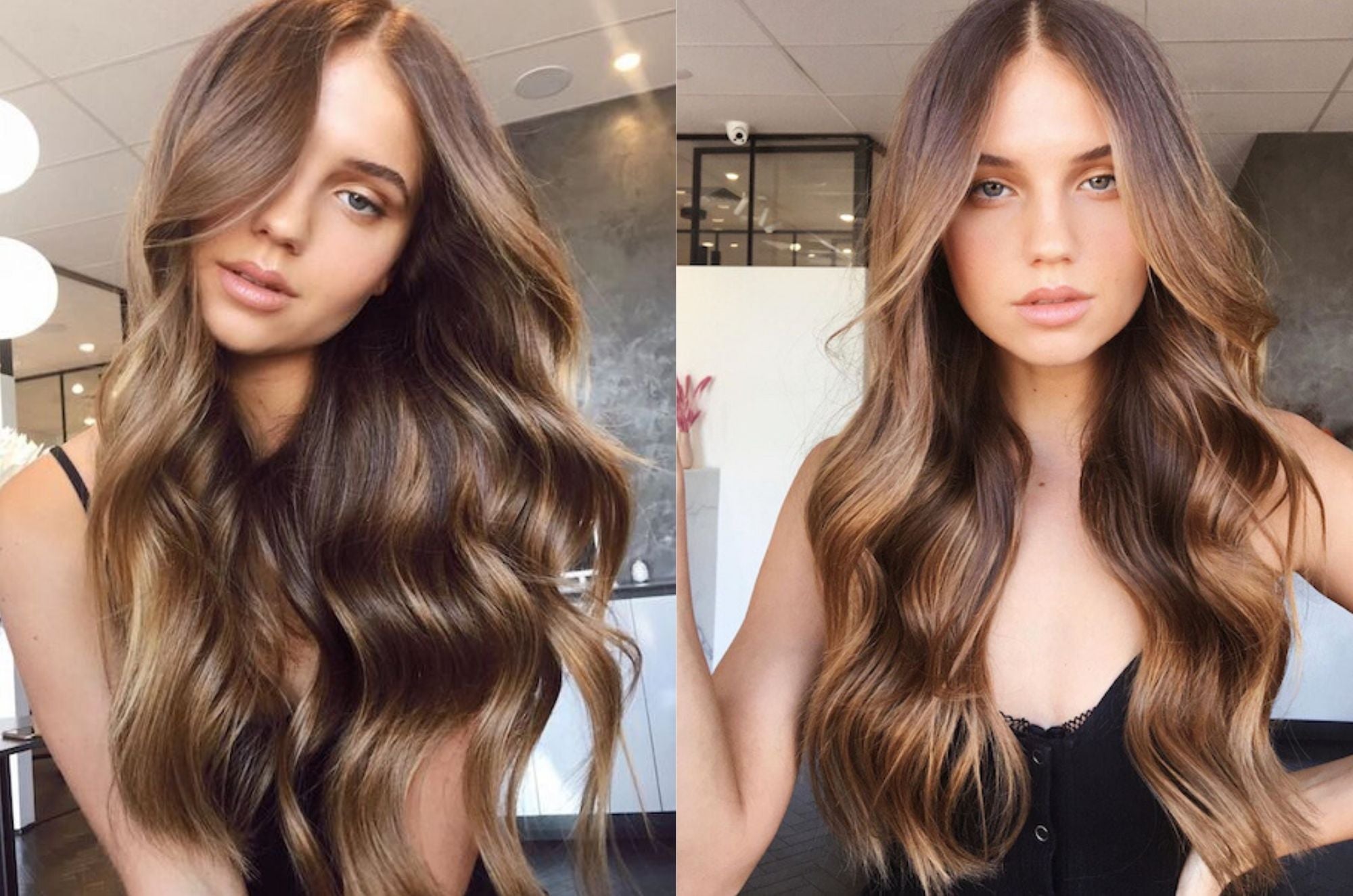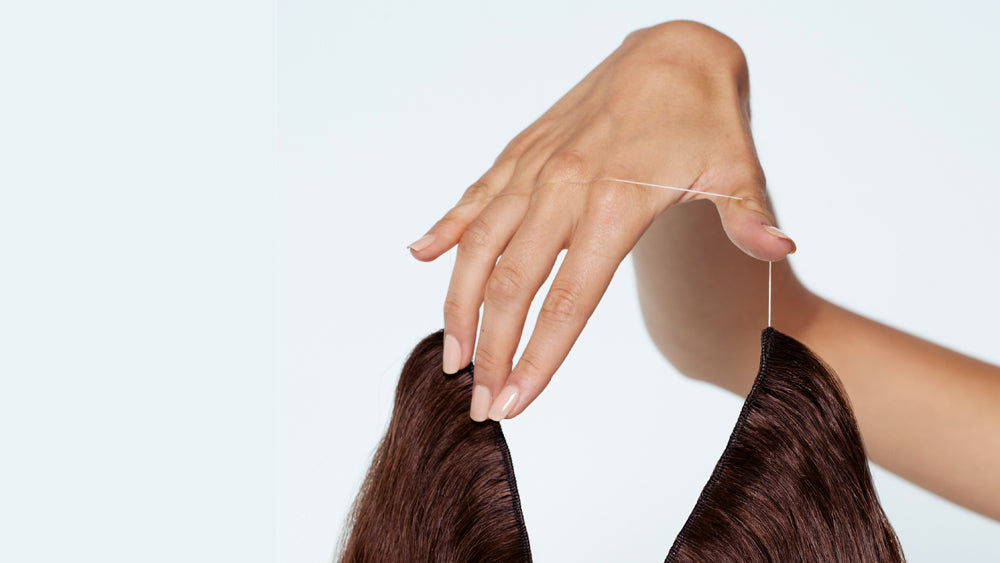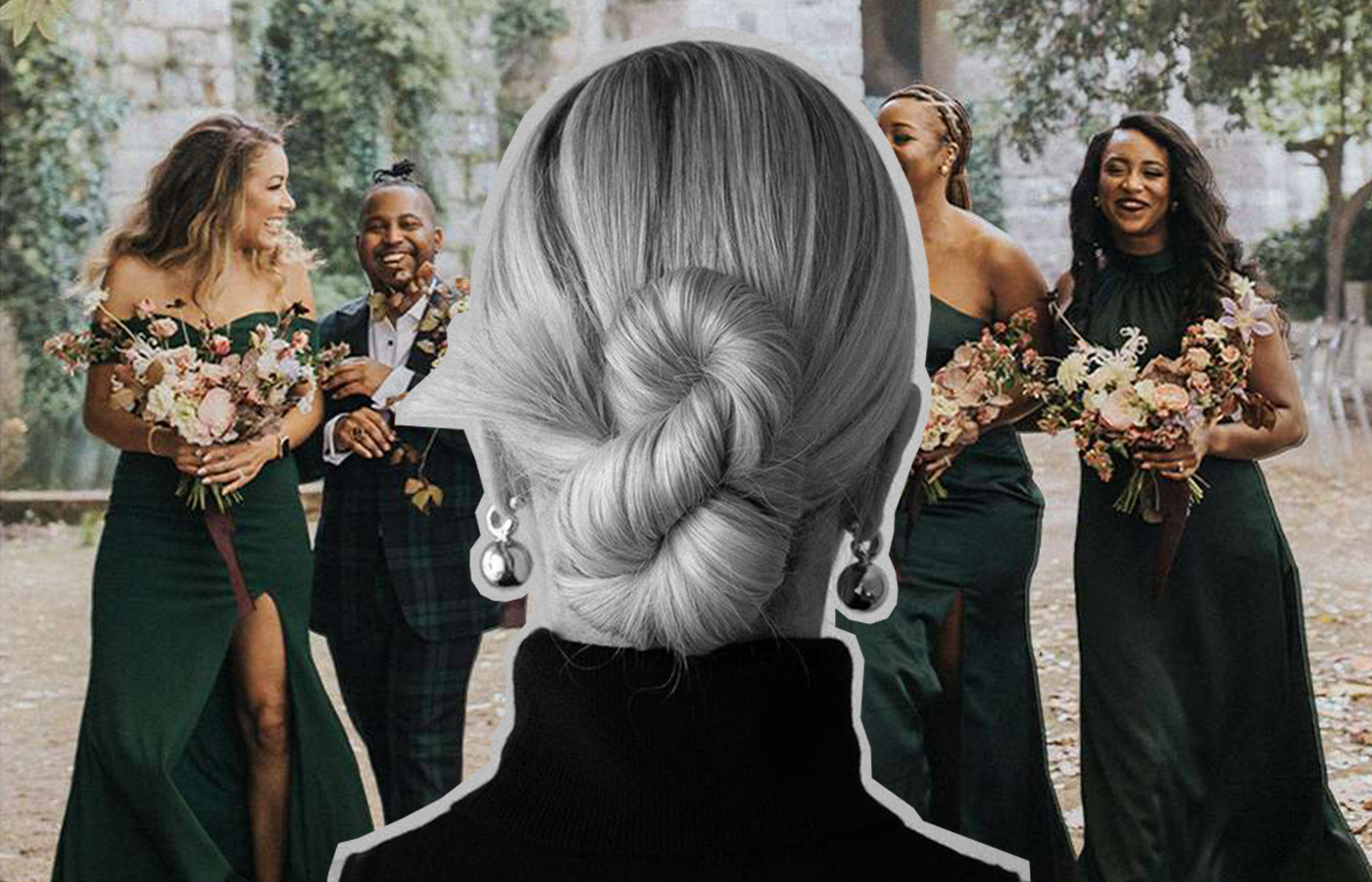The Highlights:
|
Those of us with thin hair rely on extensions to lift, fill, and build our dream hair. But, as allies of our delicate strands we often wonder, do hair extensions damage your hair?
As someone with thin and pretty flat hair, I’ve always felt I had to approach styling with an any-means-necessary tool belt of teasing, clip-in extensions, and loads of dry shampoo.
It took quite a while to realise (ahem, accept) that any volume I did achieve was at the expense of my delicate strands’ health.
Now, as I’ve started caring for my hair beyond just how it looks from day to day, I know I’ve been playing a losing game to damaging products and too-tight ponytails for years.
Thin hair means less hair. And less hair means more responsibility.
Of course, we still want healthy-looking volume and fullness, but if you’re losing half your strands in the process, you’ll require even more damaging hacks to get volume the next time and so forth.
This is why preventing damage and preserving hair health has become *so* important to me.
That means swapping out my extensions for non-damaging alternatives that still get me natural-looking length and volume—and without a ton of work either.
Combining my years of hair extensions experience along with my own personal thin hair journey, I’ll share whether hair extensions do damage your hair along with how each variation may be damaging to your locks.
Plus, the only hair extension type I swear by now for my thin hair.
Read Next: My Scalp is Sunburned: Help!
Do Hair Extensions Damage Your Hair?
In most cases, yes, hair extensions damage hair. But, fortunately, just most.
There are tons of different types of hair extensions out there with varying attachment methods, lengths of use, and purposes.
We’ll break down the severity of damage for each one, but overall, the biggest culprits of damage are going to be permanent extensions and those with snagging attachments.
Hair Extensions Types:
Tape-in extensions: Using a thin layer of medical-grade glue, these adhere directly onto hair like a sandwich above and beneath your own hair's strands.
These *should* be professionally installed and removed, but could be done yourself if you've got a knack for tedious extensions and lots of time on your hands.
Clip-in Extensions: Clip-ins are temporary extensions that attach onto your natural hair’s root using metal or plastic clips. They can easily be placed at home and don’t require professional help at all.
They’re placed in small sections of hair wherever you require extension (you’ll need a good few to fill out your hair).
Halo Extensions: Halo hair extensions are temporary hair extensions that you place and remove when you choose. They do not attach to your hair, but rather sit around your head with a snug, invisible headband.
No need for professional assistance; these can be placed at home in seconds!
Fusion/Keratin Extensions: A permanent extension type, these are professionally installed and removed/moved up in salons.
Each piece of hair has a pre-installed glue at the tip in order to adhere to your own hair. They’re placed strand-by-stand with a heated tool that fuses the extension to your natural hair.
Bead/Weft Extensions: Crafted from human hair, bead/weft extensions are secured by threading small sections of natural hair through beads and then attaching the hair weft to the bead with a specialised clamp. The beads are attached as close to the root as possible in very small bundles of strands.
For those with thin or weak hair, opt for non-attaching hair extensions to minimise damage to your hair. When extensions attach close to the root, the damage they cause is at hair’s most crucial spot, the follicle.
Read Next: Transform Your Hair Overnight With These 10 Silk Hair Caps For Sleeping
How Do Hair Extensions Cause Damage?
Extensions that attach directly to weakened hair, like fusions, tapes, and weaves will cause the most damage, especially when worn for long periods of time. But, what does this look like?
Trichologist Dominic Burg explains, “each follicle has a small muscle attached to it called the arrector pili muscle which can be damaged with repeated or prolonged pressure from tight weaves or incorrectly applied extensions."
This type of damage is called traction alopecia. Over time, and due to trauma caused to the follicle, you’ll lose hair right at the root.
And unlike more usual breakage caused by styling and brushing, this type of damage can slow hair growth and even stop it from growing completely in that spot.
Burg shares, "once the muscle is damaged and detached from the root, the root may die, resulting in hair loss. It's also important to note that very long and heavy extensions can also have the same impact on the follicles… as the sheer weight of the added hair can damage the root, especially if the weight is pulling on a small or isolated number of strands."
Truly the worst thing that could happen to thin hair: having even less.
As we’ve seen, follicle damage is the biggest concern when using hair extensions so the best way to prevent it is to remove any part of that equation. Here are the best and worst offenders.
Read Next: 5 Halo Hair Extension Before and Afters You Have to See to Believe
Will Clip-In Extensions Damage Your Hair?
Although they’re not as bad as others, the answer is still yes.
Clip-in extensions are gentler than weaves and fusions, but harsh compared to non-adhesive extensions like halos. Because they’re a temporary option, they don’t add months of weight to your follicles, but as most clip-in girls will attest, you wear them A LOT.
Extensionist China Duke explains, "the weight of the set of hair is distributed between one and five clips on a section of wefts that can only fit a small amount of natural hair that attaches to the clip.
This is what makes them quick and easy, but it puts a bulk of the weight on a disproportionate amount of your hair."
A clip here and there is okay for sure, but relying on clip-in extensions to add fullness to your hair places a lot of weight to your follicle. And frankly, the bulky clips never look that natural either!
Read Next: The Best Hair Extensions For Thin Hair
Do Tape Hair Extensions Damage Your Hair?
Tape-in hair extensions have come a long way. We’ll give them that. But, from hearing from so many of you hair extension enthusiasts over the years, these sticky extensions seem to have caused some of the more annoying types of damage.
Tape extensions damage comes down to their adhesive technique. This extremely strong, often polyurethane glue, covers a large surface area near the root, sandwiching a weft on either side of your hair.
And this glue sandwich is meant to be there for weeks to months.
Even when applied by a professional—as it should be—the glue, in combination with the weight of the extensions, can yank on follicles.
Like other adhesive extensions these can cause traction alopecia, but additionally, trapping hair between chemicals for weeks on ends is never ideal for happy hair.
Read Next: How to Revive Dead Hair With These 6 Tips
Do Halo Hair Extensions Damage Hair?
As we’ve seen, other hair extensions cause damage by pulling your own hair, but because halos don’t actually attach to your strands, there’s no pulling, matting, or damage from harsh adhesives.
And this is exactly what halo hair extensions were designed for thin hair types. They’re made to add volume, length, and an overall healthy fullness to hair while never compromising your own hair’s precious strand count.
Made to be placed over your head in seconds (and removed just as quickly), they don’t require any professional assistance or long waits in a salon chair.
New to halo hair extensions? Here’s how they work:
Read Next: The Best Hairbrushes For Every Hair Concern
Do Strand Extensions Damage Your Hair?
Fusion, keratin, microbead, and nano bead extensions, all commonly pooled as “strand extensions”, operate in the same manner: they attach very small bunches of hair right to your root.
For this reason, you guessed it: they damage your hair.
Unlike wefts that are woven or sewn in longer groups, these hair extensions are painstakingly installed in small bunches to your root with head or metal clamps caused direct pulling to follicles.
Read Next: The Best Hairbrushes For Every Hair Concern
How to Prevent Damage from Extensions
From everything we’ve seen above, the answer to your burning questions–"do hair extensions damage your hair" and "do hair extensions cause hair loss"–is a yes, but only when you use attaching extension types.
Always use extensions like halos that don’t adhere or attach to your hair’s precious roots. They give you full gap coverage in one go as opposed to painstaking salon appointments and piece-by-piece morning routines.
To prevent damage from hair extension use (as well as bleaching, heat styling, and just about everything) it’s uber important to strengthen your hair too. These are some of my easiest tips that don’t require a routine overhaul.
-
Use a silk pillowcase: If you already aren’t, respectfully, what are you doing? Swap your cotton case with a smoother, silk pillowcase stops +8 hours of breakage-causing friction and splitting to your hair. Be sure to opt for real silk like these 100% charmeuse silk weave ones, and not satin.
-
Help hair from the inside: Take biotin, zinc, and be sure to maintain a balanced diet for more than just hair and skin health! I’ve been using biotin for 3 years and I find it’s really helped boost my hair, nail, and skin health when it comes to strength.
-
Stop using traditional elastics: Replace all those snagging, stretchy elastics. As a ponytail fanatic since pre-school, I know how good a high and tight pony can be… for traction alopecia and hair fall. Use a smoother elastic, like a silk scrunchie, and it’ll significantly help alleviate hair loss because they pull out smoother and didn’t pull nearly as tight.
-
Use a heat protector: This is a non-negotiable, even for just blowout touch ups. If you think you don’t like a heat protectant, you just haven’t found the right one yet! There are shampoos, leave-in conditioners, oils and loads more options than the traditional spray. Find one you like and use it religiously to save hair.
